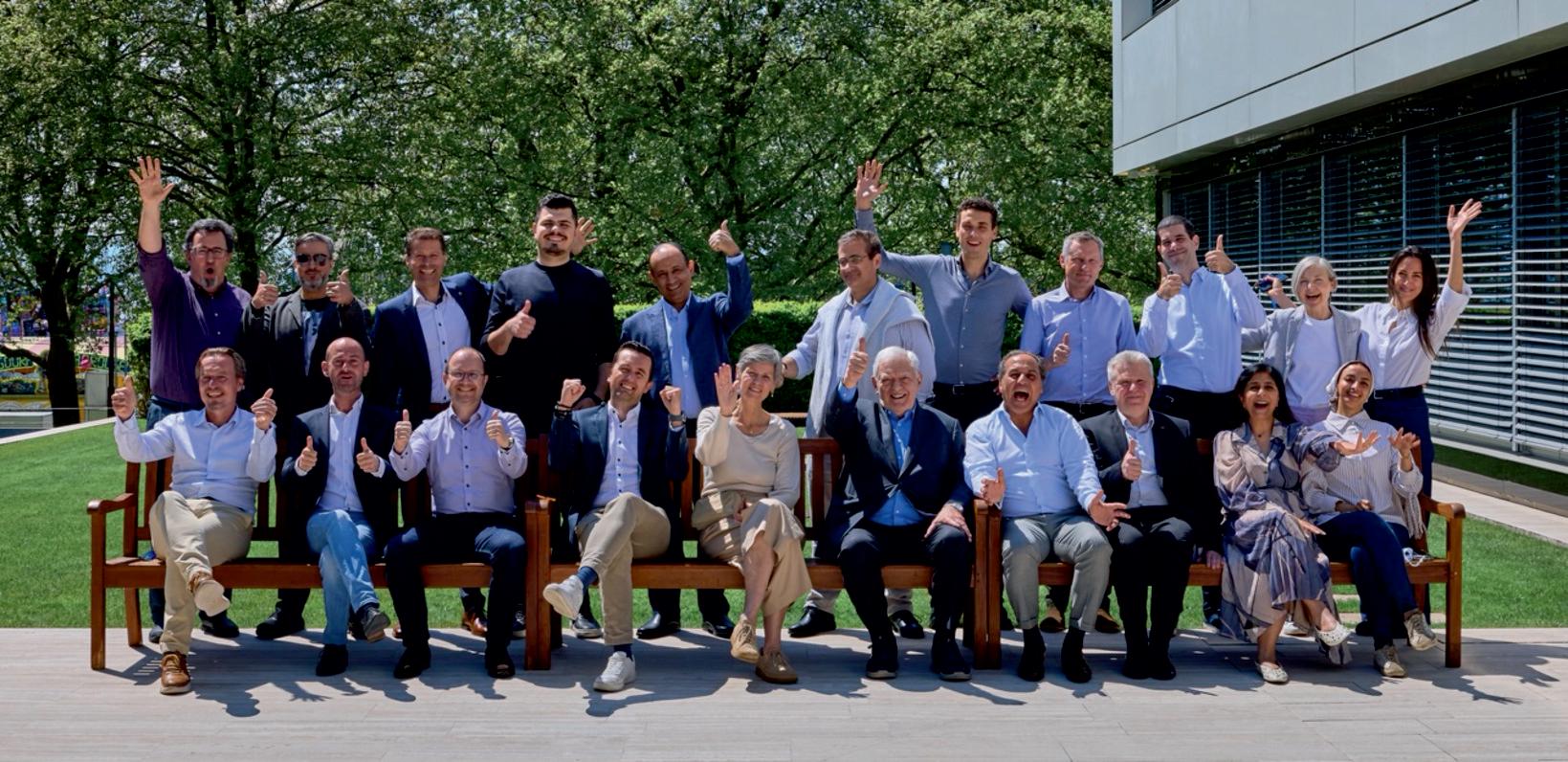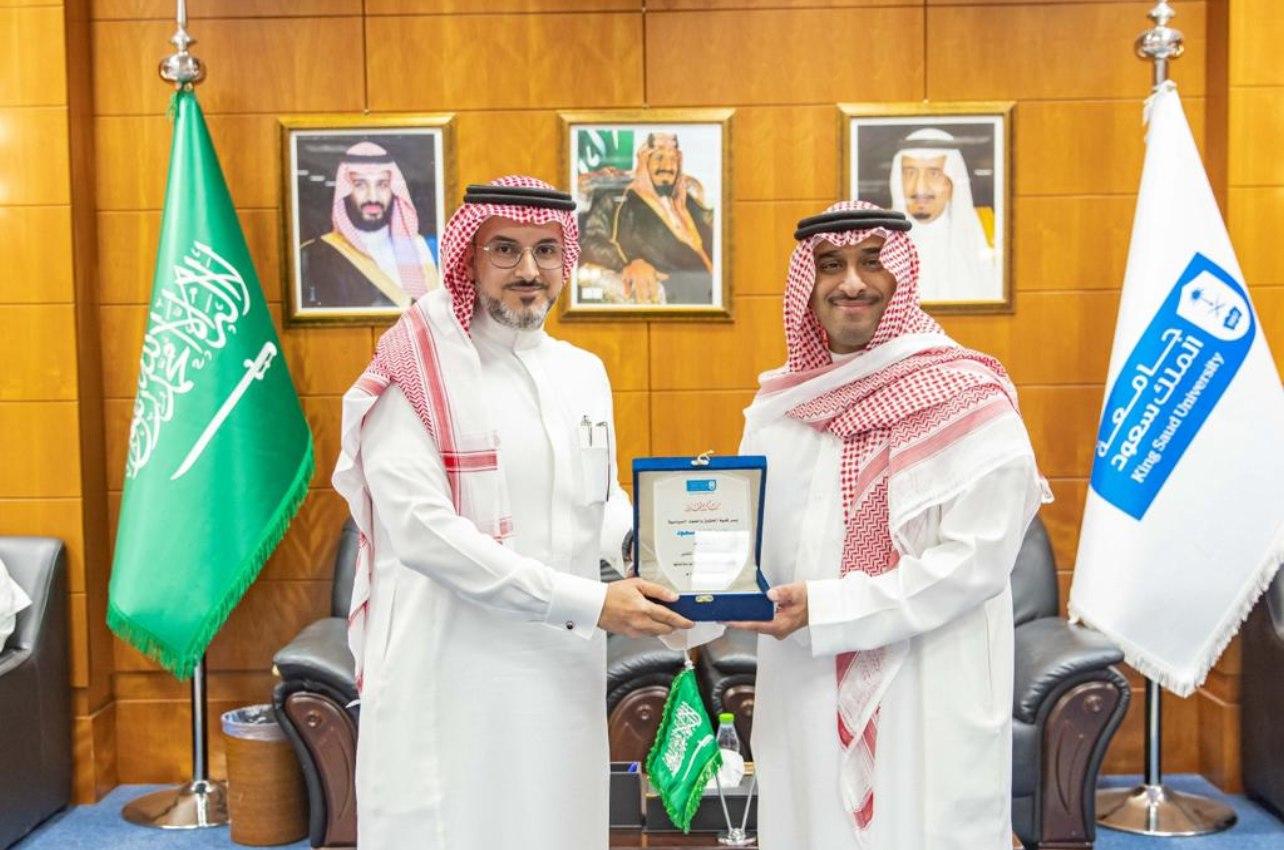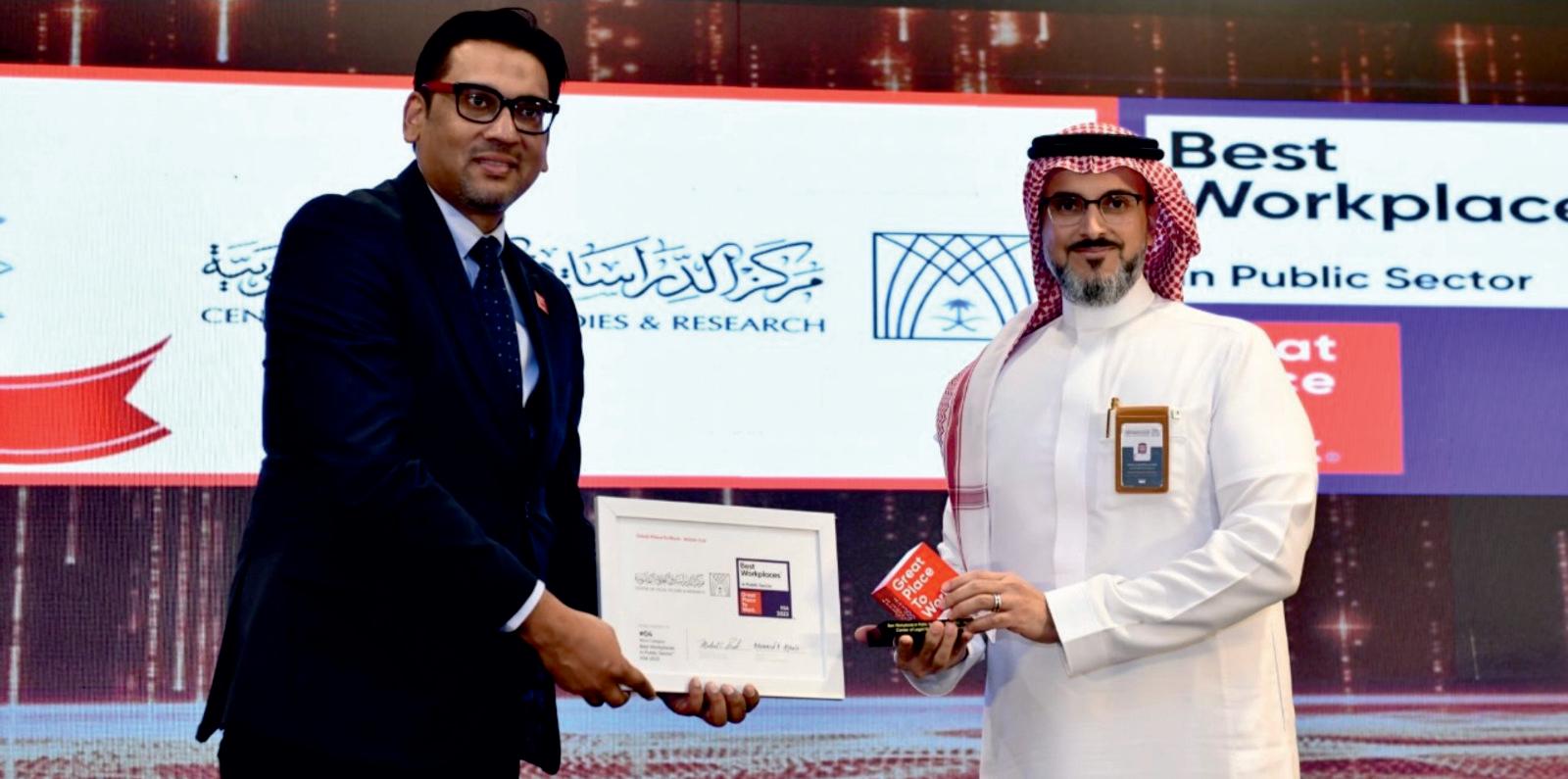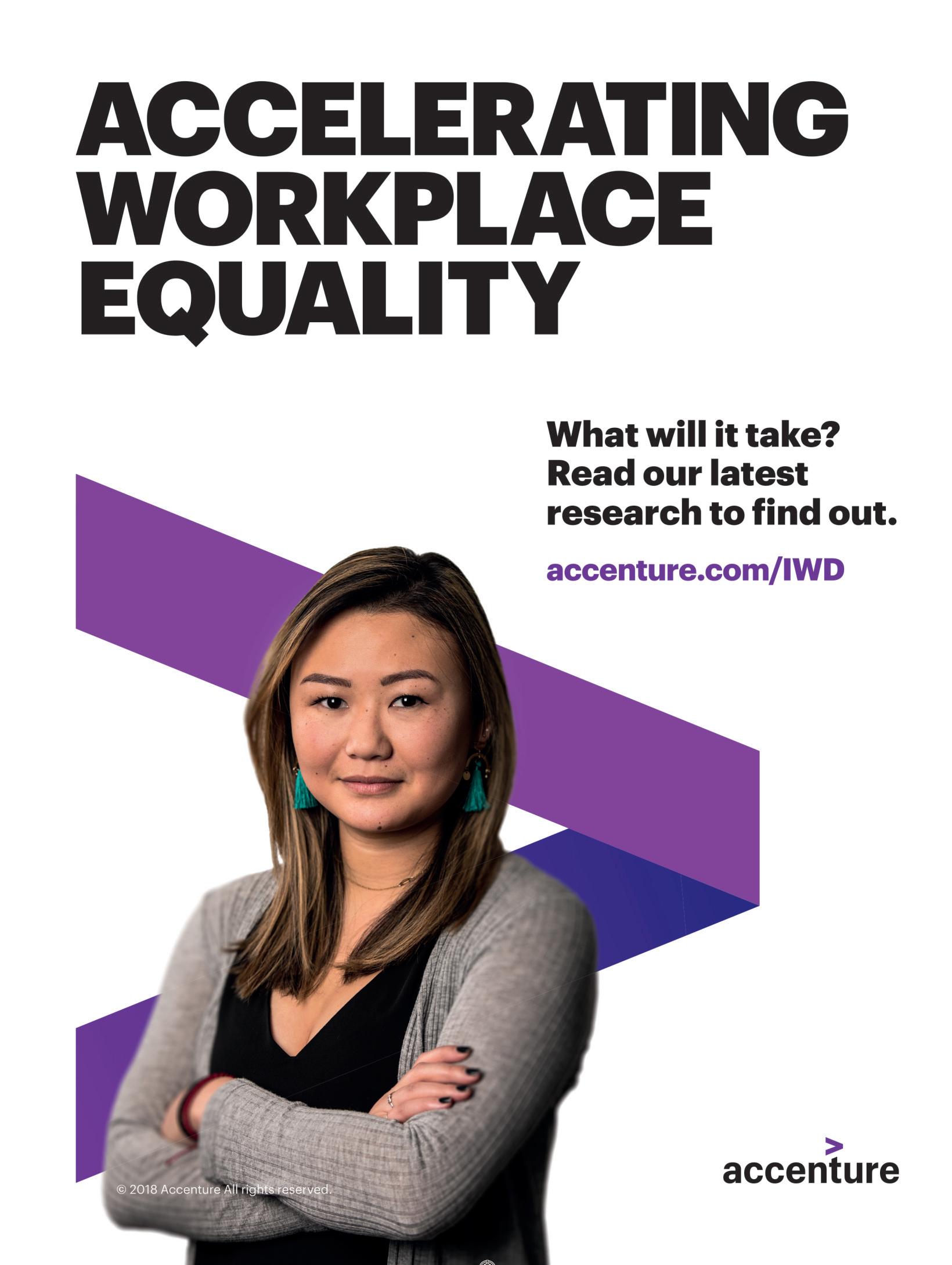MOST ADMIRED PERSONALITY TO LOOK FOR IN 2025
Maged Bin Eidan Senior Director of Human Resources & Secretary, Nomina�on and Remunera�on Commi�ee Center of Legal Studies & Research








MOST ADMIRED PERSONALITY TO LOOK FOR IN 2025
Maged Bin Eidan Senior Director of Human Resources & Secretary, Nomina�on and Remunera�on Commi�ee Center of Legal Studies & Research







Inaworldwhereresilience,creativity,andauthenticity
definetrueleadership,InsightsSuccesseditionof Inspirational Icons to Look For in 2025 shines spotlightontheindividualswhoarenotjustthriving—but transformingthespacestheytouch.Thesearethe trailblazers’redefiningsuccessbyturningtheirpersonal valuesintopurposefulimpact.
AttheheartofthiseditionstandsShiYuanYeo,aname synonymouswithinnovation,empowerment,andstrategic foresight.Asacelebratedthoughtleaderandthevisionary behindseveraltransformativeinitiatives,Yeoembodiesthe rareblendofentrepreneurialacumenandhuman-centered purpose.Herjourneyisapowerfulnarrativeofreinvention, proofthatmodernleadershipisaboutembracingempathy, cultivatinggrowth,andcreatinglastinginfluence.
Thiseditioncelebratesthedoers,thedreamers,andthe disruptorswhoarebuildinglegaciesrootedinserviceand substance.Fromreshapingindustriestomentoringfuture generations,theseiconsremindusthatinspirationisn’tjust afeeling—it’saforce.
Ourgoalwiththisissueistonotonlyhighlightthese influentialindividualsbutalsotoofferreadersadeeper understandingofthevaluesthatdrivethem.Through exclusiveinterviews,reflections,andstoriesof transformation,wehopeyou’lldiscoverinsightstofuel yourownjourneyforward.
Asyouturneachpage,mayyoufindnotonlyadmiration butalsoaspark—todreambigger,leadstronger,and inspireendlessly.
Happy Reading!

F E A T U R I N G

Maged Bin Eidan Empowering People, Elevating Systems, and Shaping the Future
18
Building a Resilient Workforce Strategy for Economic Uncertainty
Essential Competencies for Effective
HR Leadership in 2025

Art
Business
Business
Digital
Co-designer
Marketing

















Empowering People, Elevating Systems, and Shaping the Future


Maged Bin Eidan Senior Director of Human Resources & Secretary, Nomina�on and Remunera�on Commi�ee Center of Legal Studies & Research



“
Leadership is not about power—it’s about responsibility.
“



Intheageoflightningspeedbusiness,theskilltomerge organizationalvisionwithhumancapitalstrategyisthe calling card of most of the transformational leaders. Maged Bin Eidan's compelling saga is a test case and testament to this unique convergence of complementary competencies. With his tireless drive for excellence, Maged not only has crafted the future of human resources in Saudi Arabiabutalsoestablishednewbenchmarksforgovernance, institutionalresilience,andethicalleadership.
The life of Maged is characterized by his tireless quest for aligning people's potential with institutional strategy For morethantwodecadesnow,hehasbeenoneofthekeydrivers of Saudi Arabia's private as well as the public sectors' innovation oriented and facilitating environments where peopleandorganizationsgrowtogether.
Maged'sacademicbackgroundsetthestageforhisextremely successful professional life He earned an MBA in International Business Administration and Bachelor of ScienceinHRManagementfromrenownedUKuniversities; degrees which speak volumes about his lifelong passion for learning the science and art of managing people His academic pursuit did not stop at formal schooling. Maged possesses the highly prestigious CIPD Level 5 Diploma, an international standard in HR and learning and development, and has attended executive courses at INSEAD, London Business School, and IMD. These are positioned to enable himtosynthesizeinternationalbestpracticeswithaseasoned appreciation of local and regional nuances, thus having his styleinternationallyinformedaswellaslocallyrelevant.
Professional Journey: Building and Transforming Institutions
Maged'scareertookoffwithamission: connecting company success with human potential From the very start, he understood that operational excellence is founded upon empowered, engaged teams. This led him to roles where he had an impact on talent strategy, performance management, andgovernanceatscale.
In Hoshanco Holding and Banque Saudi Fransi, Maged developed his compliance, stakeholder alignment, and HR operationsskillset.
These experiences provided him with a rich appreciation of regulatory landscapes and the art of workforce planning, which then paved the way for his subsequent leadership positions.
Maged'sinnertransformativestrengthwasachievedthrough hisestablishmentandleadershipofHRoperationsforleading companies like Industrial Clusters, Namaa World, Bright Ideas Enterprises, and Hoshanco Holding Across these environments, he utilized people-centric policies, strong successionsystems,andperformancemanagementtoolsthat augmentedoperatingefficiencyandstaffparticipation.
HisstintatIndustrialClusterswasverysuccessful,wherehe synchronized workforce planning with Saudi Arabia's nationalindustrialplans,whicheventuallyledtothecountry's national vision of economic diversification and sustainable development.
Leadership at the Center of Legal Studies & Research (CLSR)
StrategicHRLeadership
After joining the Center of Legal Studies & Research (CLSR),agovernmentagencyoftheBureauofExpertsofthe Council of Ministers, Maged has contributed significantly towards establishing its governance and HR systems. As SeniorDirectorofHumanResourcesandSecretarytothe RemunerationandNominationsCommittee,hesupervises strategic HR operations and significant governance procedures.
FunctionsofMagedatCLSRare:
• Creating and rolling out people-oriented policies to alignwiththeCenter'svision.
• Establishing succession planning and executive performancemodels.
• Managing executive remunerations and board appointmentsformeritocracyandtransparency
• Facilitating employee engagement and organizational developmentprograms.

CLSR has also become a model of public sector HR excellence under his leadership, providing support for legal research and policy formulation behind Saudi Arabia's institutionalreforminitiative.
Aspartofhisgovernancefunction,Magedfostersleadership incentivealignmentwithorganizationalgoalsandadvocating for accountability and ethical stewardship culture. His consensus-takingandproblem-solvingskillshavemadehim an authority on executive hiring and compensation arrangements and further established CLSR as one of governanceexcellence.
Maged'sworkisstronglyinfluencedbySaudiArabia'sVision 2030,whichiscenteredonthecorethemeofhumancapitalas the driving force behind the country's development. As he aptlydescribesit,HRisnotjustaservicedepartmentbutthe very pillar of a country that provides long-term success and power.
Through his work, Maged has helped shape policy and institutionaldesignthatsupportstheambitiousreformagenda of the Kingdom His work has assisted in aligning organizational goals with national goals so that public institutions are better placed to respond and succeed in an ever-changingenvironment.
“ “ Adaptive leadership and empathy are the cornerstones of modern governance.





The COVID-19 pandemic was a trial of leaders across the globe,andMaged'sreactionwasontimeandsignificant.He introduced remote working arrangements, digitalized HR services,andintroducedwellnessprogramstokeepworkers healthy CLSRcontinuedtofunction,intopgear,withhimat theforefront,andevenboostedemployeeparticipationduring thisunprecedentedtimeofdisruption.
Maged'sowncrisismanagementprovesthathetrulybelieves adaptive leadership and empathy are the foundation of new government.Thepandemicservedasalaboratorytestofhis philosophy, proving that resilience is constructed not in avoiding adversity, but through responding with flexibility andunderstanding.
Maged's innovation has made him an internationally recognized figure He was listed among the "Top Arab Government HR Leaders" by The Arab Leaders for 2025, which speaks volumes about his impact on legal HR governanceandorganizationalarchitecture.


“ “ My passion is to achieve institutional excellence through human capital.
“ “ Build with integrity. Serve with purpose. Grow through people.
Magedhasguidedorganizationstoseveralawardsduringhis tenure,suchas:
• The Cooperative Training Award with King Saud University
• The"Great Place to Work"award,wonthreeyearsina rowunderhisleadership.
• FoundingmembershipofthecoreteamofCLSR,where hesetuptheHRfunctionandnominationstructures.
These noteworthy achievements speak volumes about his focus on establishing strong, future-proofed organizations that provide both operational excellence and employee welfare.
PhilosophyandApproachtoLeadership
Values-DrivenLeadership
Since the essence of Maged's leadership philosophy is that success is based on integrity, discipline, and unwavering people-focus,hedefinesleadershipasanearnestcommitment to invest in values, develop talent, and leave institutions healthierthantheyfoundhim.
Magedchallengesfutureleadersto:
• Beinquisitiveandmoral.
• Findmentorsandhearmorethanspeak.
• Approacheverydecisionwithagreaterpurpose.
• Develop resilience through learning from, but not the avoidanceof,failure.
In addition to the requirements of his high-profile work, Magedhasastructuredmethodtobalanceworkandpersonal responsibilities. He stays laser-focused on priorities, delegatestofreeuphisteams,andsetsimmersivetimeblocks topreventmultitasking.Hespendstimewithfamily,exercise, and contemplation in personal life, using digital disconnectionandinvestinginrenewalthroughlearningand travel.





For Maged, institutional service and personal growth are mutually complementary goals which benefit both his own lifeandleadership.
Maged'srecordisasmuchatestamenttohisownprofessional achievements as it is a marker of his dedication to nurturing the next generation of leaders. He is convinced that the creationofsustainablesystemsandthedevelopmentofyoung peoplearekeyelementsinachievingcontinuityandnational resilience.
He is particularly concerned with governance, performance ethics,andsuccessionplanning—eachofwhichareessential todevelopinginstitutionsthattranscendindividuals.Maged's influence extends to policy-making that encourages organizational effectiveness, ethical governance, and people development,thusenhancingSaudiArabia'slegalandpublic sectoroverall.
Apartfromhisprimaryrole,Magedisknownforhisadvisory and thought leadership activities. He works in partnership withthoughtleaders,engagesinforumstopromoteHRbest practice, and offers insights into governance structures that informthelegalresearchindustry.
Hisprofessionalnetworkisbroadinscope,throughwhichhe is able to shape policies and practices that facilitate organizationaleffectiveness,peopledevelopment,andethical governanceacrosstheregion.
Maged never stops pursuing excellence He attends leadership forums regularly, reads extensively, and looks aroundforwherehecanimprovehimself.Hiscommitmentto continuouslearningissuchthatheisalwaysatthetopofhis field, always learning to overcome new challenges and opportunities.
Magedishonestaboutwhatleadershiplessonshehascometo understandalongtheway Hefoughtperfectionismandtrying to do too much alone first. He came to realize the power of delegation and shared responsibility gradually and understood that vulnerability and looking back are not signs ofweaknessbuttraitsofgreatsustainableleaders.
He credits his success to vision, humility, and discipline. Maged'sdoubleproficiencyininstitutionbuildingandhuman behavior allows him to drive change with analytical insight andcompassion,therebysettinganexampleforfutureleaders inanybusiness.
As Saudi Arabia remains committed to vision-driven institutional reforms and national development objectives, vision-driven leaders such as Maged are most critical. His visionwithinCLSR,combinedwithhisacademicsuccessand professional qualifications, renders him a principal architect ofsuccessfulHRapproachesandgovernancestructures.
Maged's writing is testament that human capital is not an office,itistheveryfabricofacountry Hisvisionforthefuture is unmistakable: to develop institutions that respect people, systems that last, and a leadership culture based on integrity andservice.
Maged'sprofessionallifeisatemplateforthosewhoaspireto create positive change through the governance of human capital. His existence, from the creation of HR capabilities and the direction of national workforce initiatives to mentoringfuturegenerationsofleadersandadvocatinggood governance, is a testimony that leadership cannot be quantified by awards or titles, but by people and institutions onewillleavebehind.
As Saudi Arabia and the region beyond evolve forward, Maged's model remains a beacon of excellence for all who work by example in building with integrity, serving with purpose, and building with people. His legacy is one of strength, vision, and an unshakeable commitment to the common good—a legacy that will well chart the course of institutionalexcellenceforgenerationstocome.






In a time when economic tides shift overnight, corporationsfacetremendouspressuretoactfastbutnot dilutetheiressence.Amidsttransnationaldownturnsand domesticdisappointments,uncertaintyisthenormandnotthe exception.Amidstallthis,thereisonethingthatcontinuesto befundamentaltoanorganization'sexistenceandthriving:a soundworkforcestrategy
Workforce planning is not a headcount prediction or recruitment advertising. It is a dynamic system that puts the membersofanorganizationintoalignmentwithitslong-term purpose, making the organization responsible, agile, and sustainable especially amidst economic volatility Creating such a plan requires vision, adaptability, and an unwavering commitmenttopeople.
There is economic uncertainty in many forms—inflation, unstablemarkets,geopoliticalpressures,orevenunexpected internationaleventslikepandemics.Thesedriversattackthe veryfoundationofbusiness,customer,andmostimportantly perhaps,employees.
Layoffs, hiring freezes, burnout, and disengagement tend to betheimmediatefalloutwhenbusinessesareleftflat-footed.
But companies who intentionally establish a resilient workforce strategy can not only ride out these dangers but prosper Awell-plannedstrategyallowsleaderstoanticipate disruption, optimize resources, and maintain employee moraleduringtoughtimes.
Tosurviveeconomicinstability,organizationsmustfocuson somecoreaspectsthatarepartofarobustworkforcestrategy:
Economic recessions typically necessitate quick adjustment ofbusinessmodels.Astrongworkforcestrategymustbeable to facilitate quick redeployment of talent, cross-functional collaboration,andupordownscalabilitywithminimallossin productivity This necessitates investment in cross-training programs and flexible work strategies allowing workers to alternatetasksorprojectswithlittleslowdown.
Embracing analytics is key to unlocking the power of strategicworkforceplanning.
Companies need timely snapshots of talent gaps, performance, and engagement to inform decisions.With the power of analytics unleashed, executives can reveal trends, predictturnover,andsubstantiatethatworkforcecapacitywill beinharmonywithfutureneeds—whateverthefuturebrings.
Financial uncertainty is usually coupled with rapid technological change and changes in the nature of jobs. A future-proofworkforceplanisspeciallyattunedtoreskilling and upskilling employees. The creation of learning opportunities not only enhances staff but also builds confidenceandloyaltyinthefaceofadversity
Stressandanxietybuildupduringuncertainty,whichcanlead to a cause of decreased productivity and turnover. Resilient workforce strategyentailsrobust support arrangementswith mentalwell-beingfocus,employeeassistanceprograms,and communication channels Open leadership assuming responsibilityforuncertaintybutshowingcommitmenttothe teambuildstrustandmotivation.
In stead of reacting to crises, companies have to anticipate them. Scenario planning-workforce strategy enables companies to run through different economic scenarios and develop alternative plans This includes specifying key positions, succession planning, and evaluating external workforceoptionslikefreelancersortemporaryworkers.
Human-Centric Leadership: The Heart of a Strong Strategy
Behind every workforce plan is a guiding philosophy people-first leadership Empathetic leaders who communicateopenlyandleadfromthefrontcreatearesilient culture. When the economy is in downturn, how people are treated is the value-testing moment for a company. Empathetic leaders who invest in developing people will retaintalentandremainproductive.
The other of the most important aspects of such a style of leadership is to be inclusive. A workforce strategy that is strengthened retains the people with diverse skill sets and backgrounds. Diversity of thought gives birth to innovative solutions,whicharenecessarytosailthroughturbulentwaters ofeconomy
Technology can be a wonderful ally in building a robust workforce.Fromcloud-basedcollaborationtoolstoartificial intelligence-based workforce planning tools, the proper digital platform allows teams to work effectively and react quickly Automationcanevenreducemundanetaskstoallow human employees to devote their time to higher-value and moreimaginativework.
In addition, remote work technology has opened up global talentpoolsandenabledbusinessestoenjoymoreoptionsto purchasetheneededexpertiseatthedesiredcost—something ofvaluewheninarecession.
Arobustworkforcestrategyisnotatemporarysolutionbutan investment. Those companies that emerge stronger once recessionary days are behind them all share one characteristic: they held onto people. Instead of pinching pennies, they clamped careful. Instead of panicking, they strategized.
Even when good times come again, habits and structures formed when times were uncertain like flexibility, continuous learning, and employee commitment—continue toyielddividends.
No business can control economic uncertainty, but any businesscancontrolhowitpreparesandresponds.Astrategic workforceplanconvertsuncertaintyintoanengineofgrowth and innovation, not a threat. It is an invitation to leaders to think beyond survival—to build workplaces that are agile, inclusive,andforesighted.
In times of uncertainty and upheaval, it's not the largest and the strongest that will outlast, but the most adaptable. And adaptability begins with people. Investing in a long-term workforcestrategyisnotamereactofbusinessinsurance;it's adisplayofrespectforthepeoplebehindit.









The Human Resources (HR) role is undergoing revolutionary change. To begin 2025, work, workers,andtheorganizationalbusiness landscapeareunrecognizablefromwhat theywereinthepast.Theyhavespawned a new responsibility for HR leaders not only policy administrators or compliance managers, but culture architects, strategic leaders, and champions of agility HR leadership in 2025 is not managing people, it's equipping peopletothriveinever-morecomplexcontexts.

To thrive in this decade, HR professionals must cultivate a blend of heritage skills and forward-looking competencies. The following are the essential competencies that characterizesuccessfulHRleadershipin2025.
Strategic thinking is one of the critical HR leadership 2025 competencies. HR leaders are not merely supposed to grasp organizationalobjectivesbutalsogazeintothefuturetrends thatmayinfluencetheworkforce—everythingfromchanging technologies and economic cycles to geopolitical influences anddemographicshifts.
Business acumen empowers HR professionals to connect talent strategy with business goals. No longer is it about enabling the business; HR leaders need now to become businessdrivers.Thatentailsturninginformationintoinsight, influencing workforce planning, and being intimately involvedinexecutivedecision-making.
Technologyisstilltransformingworkinitsshape.FromAIpowered hiring to data analysis for performance management, technology is now an integral part of the HR function The 2025 HR leader must be technology savvy—can comprehend, adopt, and harness technology to streamlinepeopleoperations.
Additionally,decision-makingbasedondataisnotachoice. HRleadersmustbeadeptatinterpretingcomplexsetsofdata so that talent acquisition through employee engagement programs can be informed by it. Being able to draw conclusions from HR analytics is essential to creating agile, responsive,andfuture-enabledteams.
Whereas technical competence is a necessity, it has to be complementedwithahumanelement.Emotionalintelligence (EI) remains the most sought-after talent for HR leaders.As burnout, mental illness, and flexible work arrangements prevailatamomentwhenwellbeingisemergingasapriority, empathyisthethreadthatsewspoliciesintopeople.

EI-strong HR leaders are in the best position to have difficult conversations, manageconflict,andestablish trust organization-wide. They create inclusive cultures and psychological safety and get employees heard, seen, and valued.
DEIB is not lexicon it's strategic necessity Great HR leadership is the skill to establish a culture within an organization that honors and envelops diversity and offers equalopportunityofaccessto all.
HR leaders should be cultural stewards who exhibit inclusive behavior and are held accountable by others to develop a workplace that is respectful and inclusive That includes being aware of unconscious bias, using inclusive hiring practices, and developing programs that promote underrepresented populations.
In2025,businessesaren'tjustbeingassessedonproductand service, but on their values as well. HR has a key role in showcasingthosevaluesinday-to-dayapplicationandlongterminitiatives.
Today's organizations are constantly evolving. Whether through digital transformation, shifting markets, or worldwidecrises,changeistheoneconstant.SuccessfulHR leadership means to lead people through such changes with confidenceandclarity
HR professionals need to be change management experts to drive successful change. They need to communicate well, manage resistance, and keep employees on board in the process.
Agility,orthecapabilitytoshiftquicklyandeffectively,isone criticalskillthatallowsHRleaderstoshiftstrategiesinrealtime.
Talent will remain the company's most treasured asset in 2025 but reaching it will take deliberate leadership development.HRleaderswillneedtospotanddevelophighpotentials, build solid succession plans, and create learning cultures.
Successful HR leadership requires more than training to achieve actual development. It is about designing personalized development routes, maximizing the power of mentoring programs, and using technology to facilitate justin-timelearning.HRalsoneedstopromoteagrowthmindset, so that all employees can envision a future within the organization.
With worker ethics under more and more scrutiny, HR executives are expected to maintain high standards of integrity Theyaresometimestheconscienceofthecompany, making decisions that impact individuals' livelihoods and well-being.
Trust is a continuous process, not an event. HR leadership based on integrity, fairness, and accountability will build a culture in which employees feel secure and valued. When dealing with sensitive employee issues or in making tough ethicaldecisions,HRneedstoalwaysdowhattheydo.
The changing work environment in 2025 brought new expectations for the HR leader. No longer mere facilitators, theynowserveasdesignersofchange,culturebuilders,and drivers of strategic value. The most effective version of HR leadership is analytically strong and humanly deep, with information informing their decisions and an understanding oftheemotionalcurrentsinvolved.
Toservethisage,HRleadersmustbecommittedtolifelong learning,flexible,andneverlosethehumanaspectthatliesat theheartoftheirwork.Withthesefundamentalcompetencies indevelopmentandimprovement,theycanbuildworkplaces whereperformanceandpeoplesucceedtogether





www.x.com/insightssuccess

